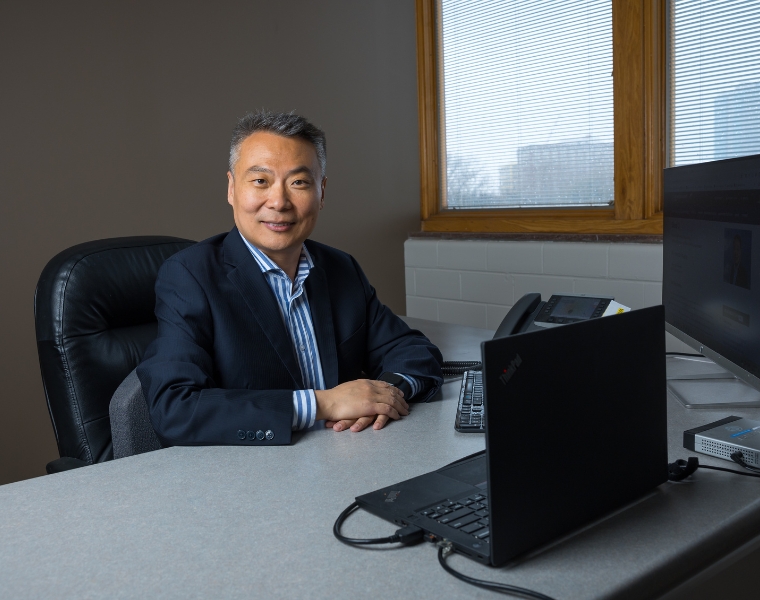
Shuo Li
Leonard Case, Jr. endowed chair professor in engineering at Case Western Reserve
Professor in Department of Computer and Data Sciences at Case School of Engineering
Professor in Department of Biomedical Engineering at Case School of Engineering
Member of the Cancer Imaging Program at the Case Comprehensive Cancer Center
Fellow of SPIE, AAIA and AIMBE
Area of focus: image-centered AI systems for clinical applications
Imagine a world in which doctors can predict disease before it happens, diagnose more accurately, and personalize treatment for patients.
Shuo Li's research aims to get us there.
"My goal is to [harness artificial intelligence to] make medical imaging smarter, more accessible, and safer-ultimately transforming healthcare," Li said.
In his view, AI is a "game-changer" for medical imaging, offering the ability to enhance patient outcomes and optimize healthcare workflows. The technology can improve early diagnosis by recognizing subtle patterns the human eye may miss, or speed decision making with accelerated image analysis. AI can even identify risks before symptoms appear.
Through their research, Li and his colleagues are working to develop an AI-enabled contrast agent to serve as a safer alternative for the chemical agents used in contrast-enhanced imaging, such as magnetic resonance imaging (MRI) scans.
The innovation, which was highlighted in the journal Nature last year, reduces risks associated with contrast dyes and significantly lowers healthcare costs.
"By providing safer, more accessible imaging solutions, this work has the potential to revolutionize radiology and improve outcomes for millions of patients worldwide," he said.
To bridge the gap between AI research and real-world medical applications, Li engages in several essential partnerships. He collaborates with clinicians to ensure AI solutions address actual clinical needs and works with healthcare institutions to access large-scale imaging data to develop robust models. In his experience, industry partnerships help ensure innovations reach patients.
"Case Western Reserve University has provided an exceptional environment for interdisciplinary collaboration, particularly through its strong biomedical engineering and AI research ecosystem," Li said. "The university's support in securing research funding and fostering clinical and industry partnerships has been invaluable in advancing my work."
AI in healthcare is, of course, not without its challenges, including regulatory hurdles, clinical adoption, and data availability and bias. But the real-world impact on patient care keeps Li motivated.
"Collaborating with clinicians, graduate students, and researchers worldwide, I continually see AI's potential to transform healthcare," he said. "The excitement of pushing these innovations forward and turning research into real-world impact drives me every day."






